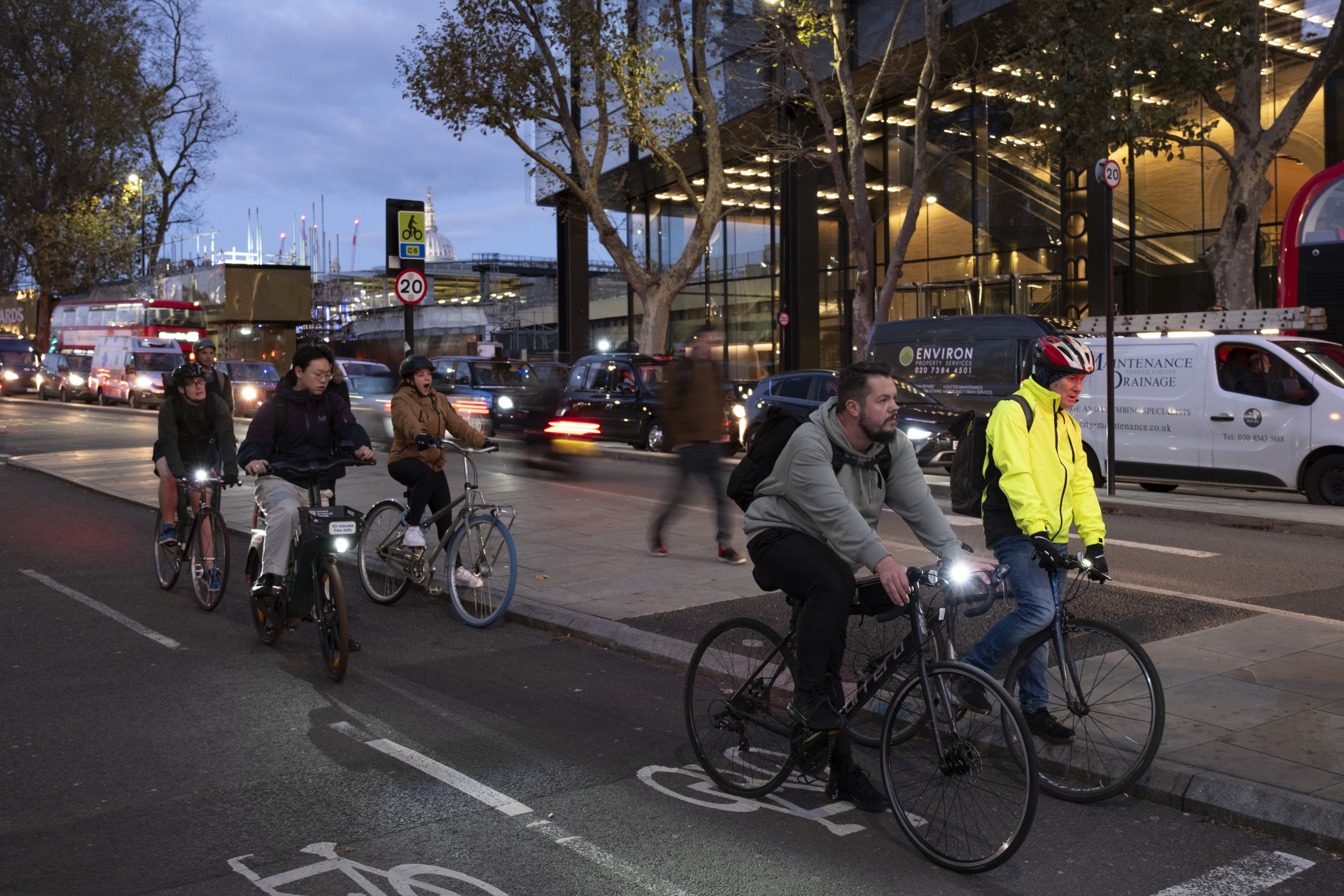
“The lack of infrastructure makes a big difference for me because I just don’t feel safe on the road," Euan tells Cycling Weekly. "I’ve seen people knocked off their bikes and near misses at the closest intersection to my house and it just puts me off. Plus seeing people constantly overtake bikes way too close just means I don’t feel confident going out to ride.”
The 25-year-old is not alone. A new report from the IPPR, Stride and Ride: England's path from laggard to leader in walking, wheeling and cycling, makes clear the impact that a lack of active travel spending has had on the nation, with just one in five people walking, wheeling or cycling every day, compared to one in four across Europe.
Anecdotally, speaking to friends, the lack of infrastructure is a key reason behind them not taking to two wheels to get around, let alone cycling for exercise.
More cycle lanes would encourage Abi, from Bristol, to cycle, she explains to Cycling Weekly, "knowing that I could be separate from cars in more places around the city centre particularly."
"I was knocked off my bike on the A32 towards the airport and since then I don’t want to be anywhere near cars," she explains. "It’s a big education piece for drivers on how vulnerable cyclists are - no one is trying to be annoying, just getting from A to B like everyone in cars, and often cyclists are treated like they don’t deserve road space."
Investment in active travel is historically low across all of England, accounting for just 2 per cent of the total transport spend, leading to some of the lowest rates in Europe.
"People really understand that active travel is important part of everyday life," Maya Singer Hobbs, the report's lead author, told CW. "What we've tried to do with this report is to situate it in the broader context. So it isn't just about transport, it's also about health, access to services, and the economy.
"Hopefully that will help shift the way people feel about it, and there's something for everyone. National government is one thing, but we've definitely seen ambition and attempts at local levels too."
While just £10 per person is spent on active travel, £148 per person per year was spent on roads, the report found. The benefits of more people walking, cycling and wheeling are made clear, including making net zero a feasible goal, and reducing the burden on the NHS. Also, for every £1 spent on active travel, there is an average return on investment of £5.62, compared with just £2.50 for roads.
Doubling cycling and increasing walking would prevent 8,300 premature deaths and save £567 million per year through improved air quality. Cycling must increase by at least 20% by 2030 to fairly reduce car use in line with meeting the UK’s climate commitments, according to the study.
The report lays out the requirements necessary for England to become an "active travel nation", which include putting in place a 10-year investment guarantee for active travel, with a commitment to spend at least £50 per head on active travel by 2029-30. That time frame is necessary in order to give local authorities the security to build infrastructure.
"We'd like to see a shift in the way people think about getting around," Singer Hobbs said. "We'd like that in rural and urban areas, and we see what e-bikes do in terms of making cycling more accessible in rural areas. Part of the reason we want this big investment is for government to set a direction that this is important.
"We also want it to be clear that in order to reach our climate targets, we are going to have to reduce car use. This isn't about being anti-car, we also want the adoption of electric vehicles, but there are journeys that could be moved to active travel. It's about making sure that people feel safe and able to do this.
"61% of people surveyed in one government survey said that if the road was safer they might cycle. Providing that infrastructure is a key part of changing that mindset, and getting that cultural shift."
"When it comes to investing in active travel, Scotland and Wales are investing to reap the benefits that come from increased spending, while England remains the poor relation," Sarah Mitchell, Cycling UK's chief executive, said. "It seems the UK government didn’t get the memo and we therefore hope this new research will shift attitudes across Westminster so that walking, wheeling and cycling shoots up the list of investment priorities."







